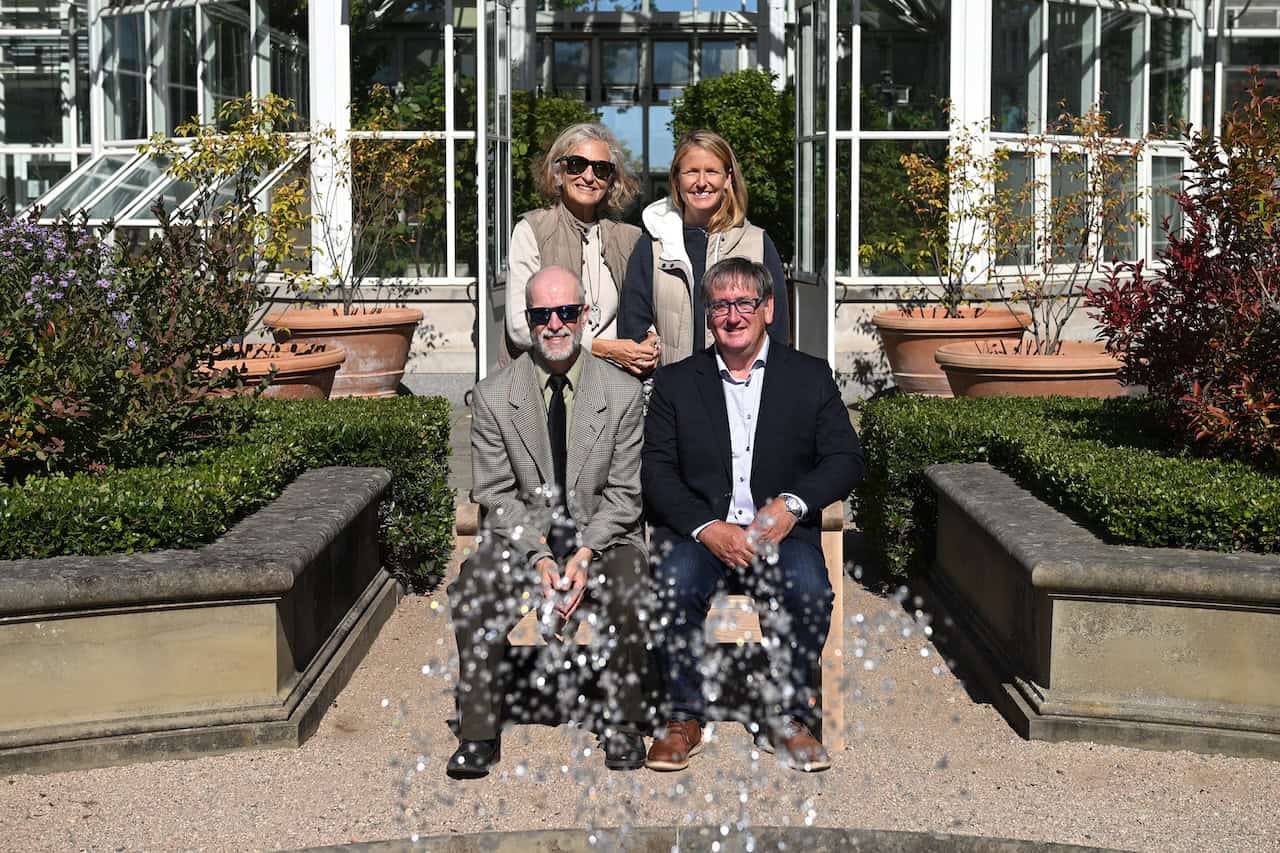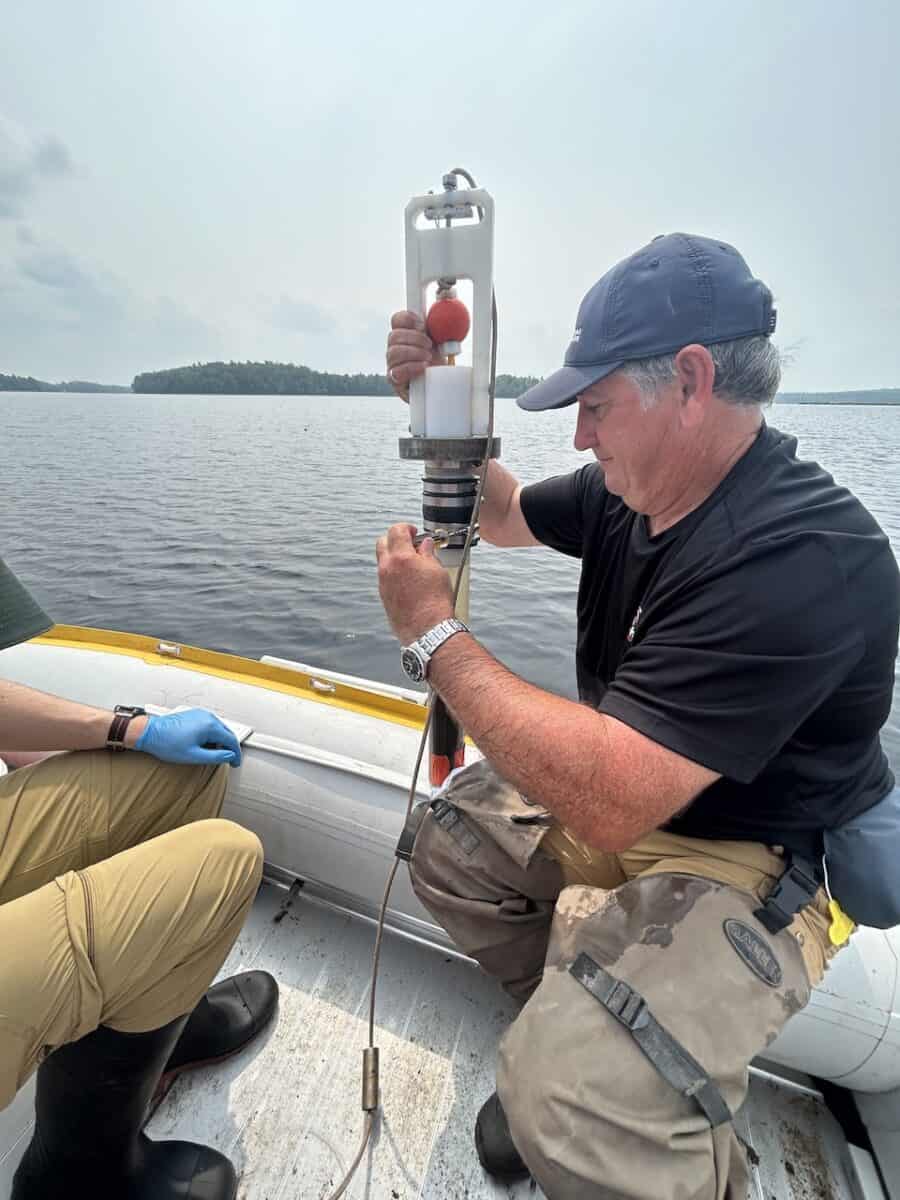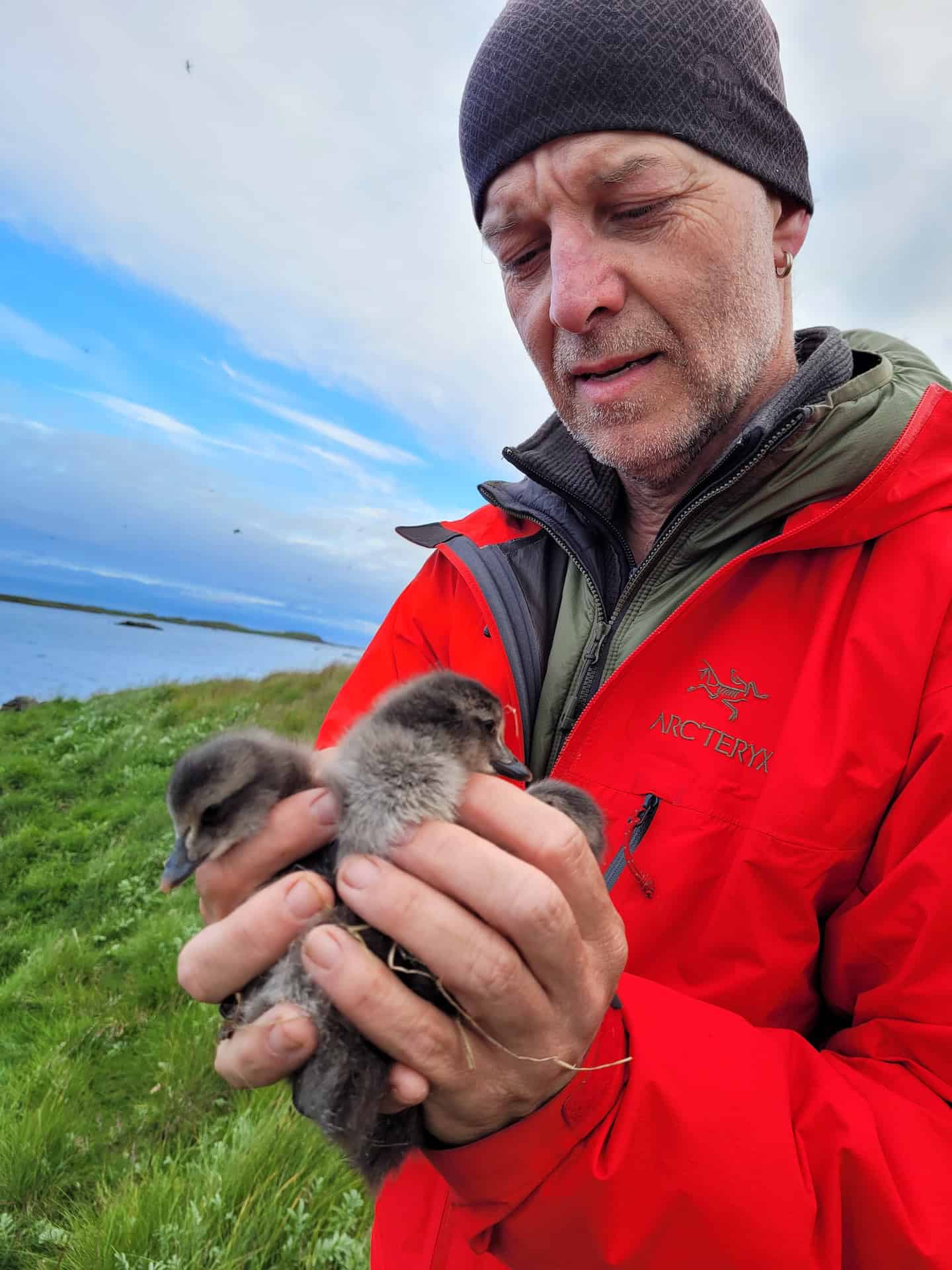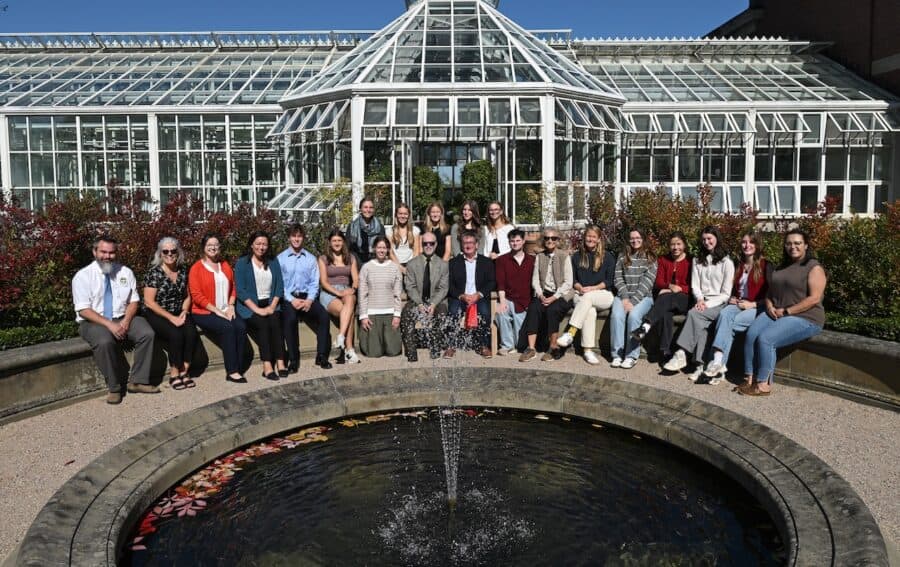
The K.C. Irving Environmental Science Centre and Harriet Irving Botanical Gardens are pleased to announce a leadership change with the appointment of Dr. Mark Mallory as our new Director of Research, succeeding Dr. Ian Spooner, who concludes his six-year term in the role.
Thanking Dr. Ian Spooner
During his appointment, Dr. Ian Spooner was a strong advocate for the K.C. Irving Environmental Science Centre. His notable achievements include: improving continuity within the Irving Centre by introducing a staff level research manager and Irving Scholar coordinator; creating an Acadia Student Beaubassin Research Experience; welcoming Nova Scotia Envirothon to the Irving Centre’s portfolio; and overseeing a revitalization project of the microplastics and microcontaminants laboratory.
Sarah Hines says “As the Irving Centre Research Manager and Irving Scholar Coordinator, I’m deeply grateful for Dr. Spooner’s mentorship during his appointment. Ian consistently took the time to explain the context behind decisions, which helped me grow and learn. I greatly admire his optimism, kindness, and thoughtful leadership—qualities I strive to carry forward. Ian was always generous with his advice and genuinely invested in empowering those around him.”

Dr. Spooner reflects, ” It has been my honour to serve as Director of Research at the K.C. Irving Environmental Science Centre and Harriet Irving Botanical Gardens. I have had the pleasure of working with innovative researchers and their students, an incredibly talented cohort of Arthur L. Irving Family Scholars, along with dedicated staff in a collaborative and supportive environment. I also want to acknowledge the guidance of Dr. Kelvin Ogilvie, past president of Acadia University, over the course of my directorship. Importantly, I have enjoyed supporting research in a world class facility made possible by the vision and generosity of Arthur, Sandra, and Sarah Irving”.
Pictured left: Ian Spooner coring a lake with an Arthur L. Irving scholar in summer 2025.
Welcoming Dr. Mark Mallory
Dr. Mark Mallory brings an outstanding record of environmental research leadership to the position. He currently serves as a Tier 1 Canada Research Chair in Coastal Ecosystem Connectivity and Resilience, and is internationally recognized for his work in Arctic seabird ecology. In recognition of his contributions, Dr. Mallory was inducted as a Fellow into the Royal Canadian Geographical Society. Dr. Mallory has 426 scientific journal publications and book chapters and is currently the co-Editor-in-Chief of the journal Arctic Science.
Dr. Mallory’s research experience includes 20 years with Environment and Climate Change Canada, with 12 of those spent in Nunavut. He came to Acadia with an established Arctic research program, which has grown, while also expanding his research into new regions and species since joining Acadia in 2011. Dr. Mallory’s research program has led to supervision of 22 honours students, 48 master’s students, co-supervision of four PhD students, and supervision of eight post doctoral fellows, creating significant impact in training the next generation of environmental scientists.
Pictured right: Mark Mallory is an ecologist, well known for his avian research program.

Dr. Mark Mallory is excited for this chapter, “We are seeing the scientific fruition of a lot of great work we’ve put in here in the K.C. Irving Environmental Science Centre the last few years. Personally, I’ve had close ties with the Centre since I arrived at Acadia, collaborating on research on mercury with Dr. Nelson O’Driscoll, and for the last several years, running a lab in the Irving Centre which focuses on plastic pollution and the conservation of wildlife in the face of a myriad of environmental threats. At a broader level, since 2011 I have worked at the Beaubassin Research Station with Ducks Unlimited Canada on wetland and avian research, continuing Acadia’s long-standing collaboration with that conservation organization. Overall, our lab-based and Beaubassin-related work has been well-supported by the Irving Family, for which we all remain extremely grateful. While all of this has been happening here at the Centre and at Beaubassin, our lab’s research has continued in Arctic Canada, where we are undertaking collaborative research with several Inuit communities on environmental threats, and we’ve started new collaborations with the Nova Scotia Department of Natural Resources on harvested mammals like bears, coyotes, and fishers. The Mallory Lab is also inheriting and continuing the avian research initiated by Dr. Dave Shutler (Emeritus) at Acadia’s Bon Portage Island Research Station, notably linking that to our plastic pollution work here at the K.C. Irving Environmental Science Centre. Finally, I’m not letting Ian out of my grasp just yet: Dr. Spooner and I are collaborating on a new project looking at plastic pollution from boat-based antifouling paints in harbours around eastern Canada”.
About the K.C. Irving Environmental Science Centre and Harriet Irving Botanical Gardens
The K.C. Irving Environmental Science Centre and Harriet Irving Botanical Gardens are a centrepiece of Acadia’s commitment to environmental research and education. Open to the public daily, the facility invites visitors to connect with nature. The Irving Centre is a worldclass research facility with the largest herbarium in Atlantic Canada, a seed bank for native herbaceous species and specialized labs for plant and environmental contaminant research.
As Director of Research, Dr. Mallory will lead and support the Irving Centre’s multidisciplinary research activities and work to attract innovative projects to advance our understanding of the natural world.



 Acadia University
Acadia University